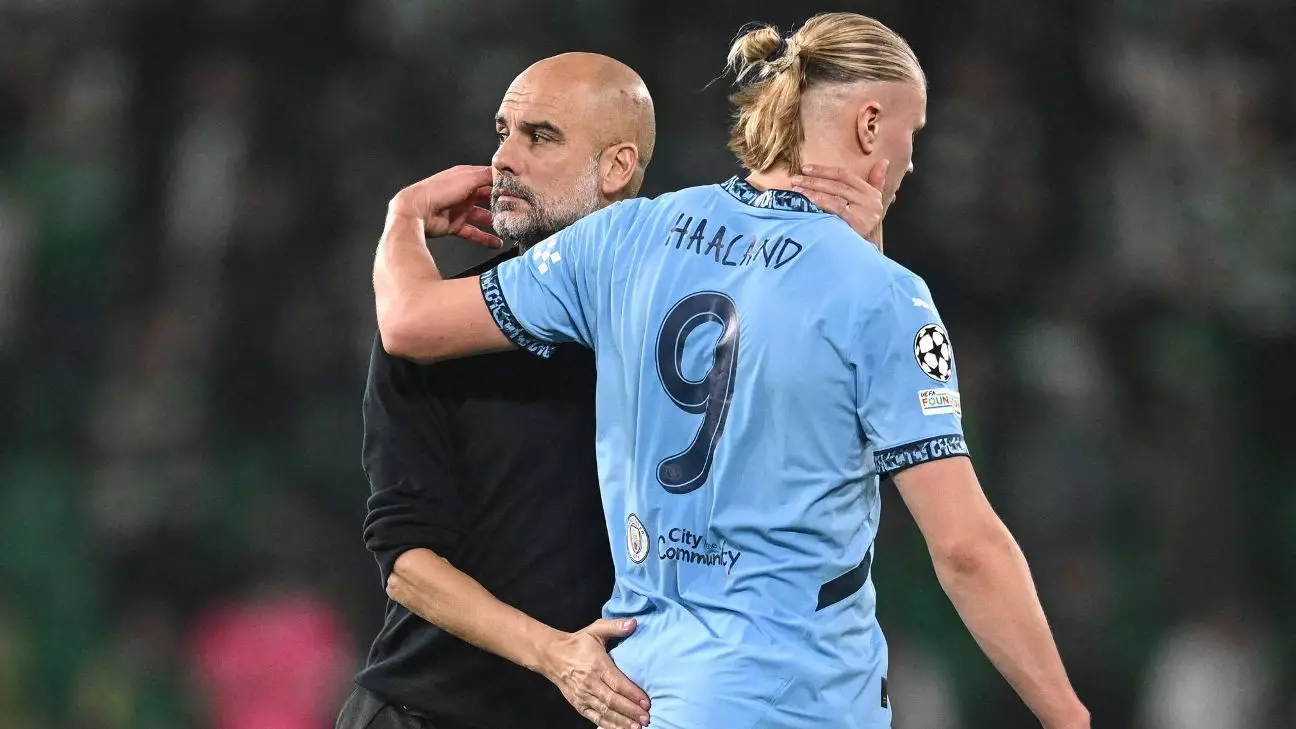In a tactical move aimed at stabilizing their performance on the pitch, Manchester City recently announced Pep Guardiola’s contract extension until 2027. While having a manager of Guardiola’s caliber at the helm acts as a beacon of hope for City fans, it does not entirely resolve the myriad of issues the club currently faces. The impending uncertainty surrounding the contracts of 16 first-team players is now casting a long shadow over the Etihad Stadium, potentially complicating the club’s future. With star players like Erling Haaland, Kevin De Bruyne, and Rodri all facing uncertainty regarding their contracts, City desperately needs to navigate this complex situation effectively.
The club is not just worried about contract expiry dates; they are also grappling with FA charges regarding financial misconduct, which could impose severe repercussions. These looming legal issues could lead to substantial fines, points deductions, or even expulsion from the league—a drastic scenario that no one wishes to envision. Players and their agents are understandably reluctant to engage in contract negotiations amidst such volatility, which is akin to playing a game of chess while your opponent holds a gun.
Since the financial allegations came to light in February 2023, there’s been a noticeable lack of contract extensions for first-team players. The only exceptions are backup goalkeepers Stefan Ortega and Scott Carson, who put pen to paper on new deals. With stars like Kyle Walker having extended his contract merely under different circumstances, it raises a critical issue: how will City convince its best players to commit long-term while their future hangs in the balance?
The situation mirrors Liverpool’s predicament with key players entering their final contract year, which ultimately placed them in vulnerability. Just as Liverpool learned the hard way, allowing pivotal players to run down their contracts can lead to losing them for free—a blunder City can’t afford during such a crucial phase. With City approaching the critical point of their “class of 2027″—a group that includes the likes of Haaland and Foden—they need to act before it’s too late.
As it stands, Guardiola’s contract extension has only partially alleviated concerns regarding the coaching staff. With the legal proceedings that have commenced at the International Dispute Resolution Centre, the outcomes of which remain unpredictable, it would be unreasonable to expect players to make long-term commitments. Speculation around potential outcomes could further cloud players’ willingness to sign contracts—whether they feel their futures are secured at City, or if they should hedge their bets elsewhere.
This scenario intensifies especially for players like Ilkay Gündogan and Kevin De Bruyne, both of whom are in their thirties and whose contracts are up after this season. The fear of being left without a clear path forward could drive them away, especially given the fluid nature of contract negotiations as the seasons progress.
Furthermore, beyond the notable names that collectors of City memorabilia revel in, there are another six players whose contracts will expire in June 2026, adding layers of complexity. Each decision made will be fraught with consequences, as insistent contract negotiations may lag behind or become hesitant. These players, comprising of both veteran members and emerging talents, will dictate City’s capability to either rejuvenate or reshape their squad in the years to come.
On top of all this, the departure of long-standing director of football Txiki Begiristain will add to the inner turmoil at the club, compounded by the arrival of hew personnel—Sporting CP’s Hugo Viana is set to replace him. This change could signal a shift in strategy, philosophy, or approach to contracts and player development, which could further exacerbate existing uncertainties.
While Guardiola’s contract offers a semblance of stability, the larger framework for City’s future relies upon how adeptly they can navigate through turbulent waters to secure the future of their talent. Key players must see a vision worth committing to, far beyond just financial incentives or the allure of trophies.
The road ahead for Manchester City could be treacherous, fraught with contractual dilemmas exacerbated by legal entanglements. While Guardiola’s renewal was a positive sign, it alone is insufficient in mitigating the mounting concerns regarding player commitments and the overarching health of the club. Whether the current leadership can pull together a cohesive plan to either renew contracts or pivot towards a new strategy remains to be seen. This period will prove to be pivotal: getting the contract situation resolved for foundational players will determine the club’s trajectory well into the latter half of the decade. With each passing day, the club fine-tunes its balancing act between ambition, accountability, and stability.

Leave a Reply